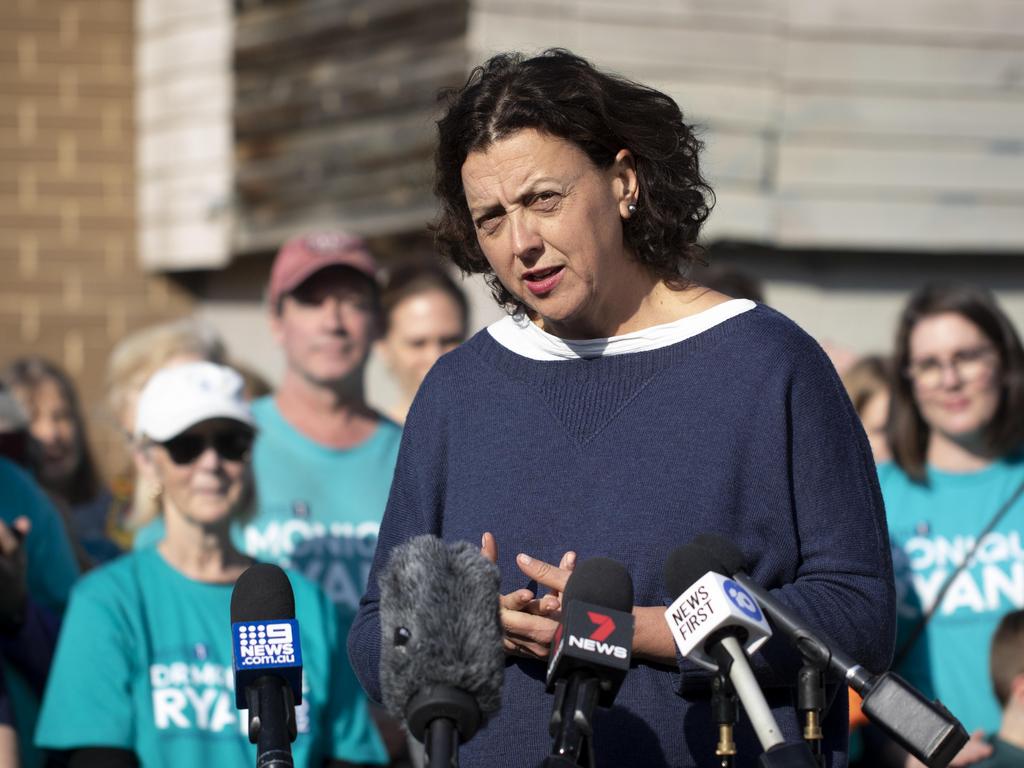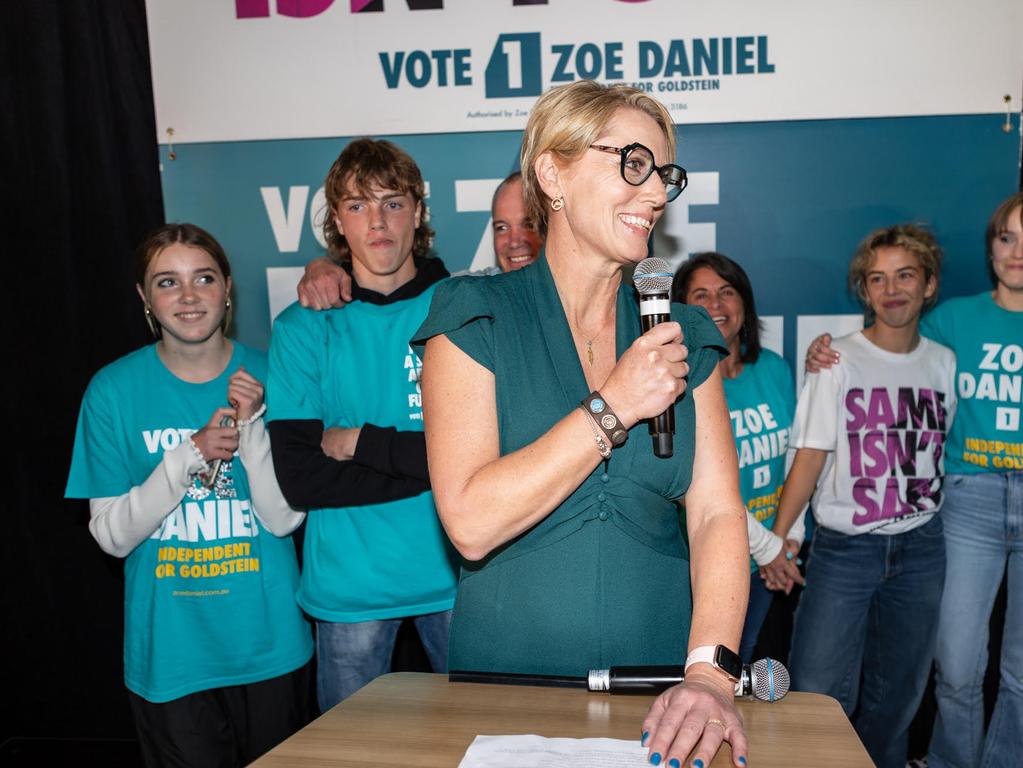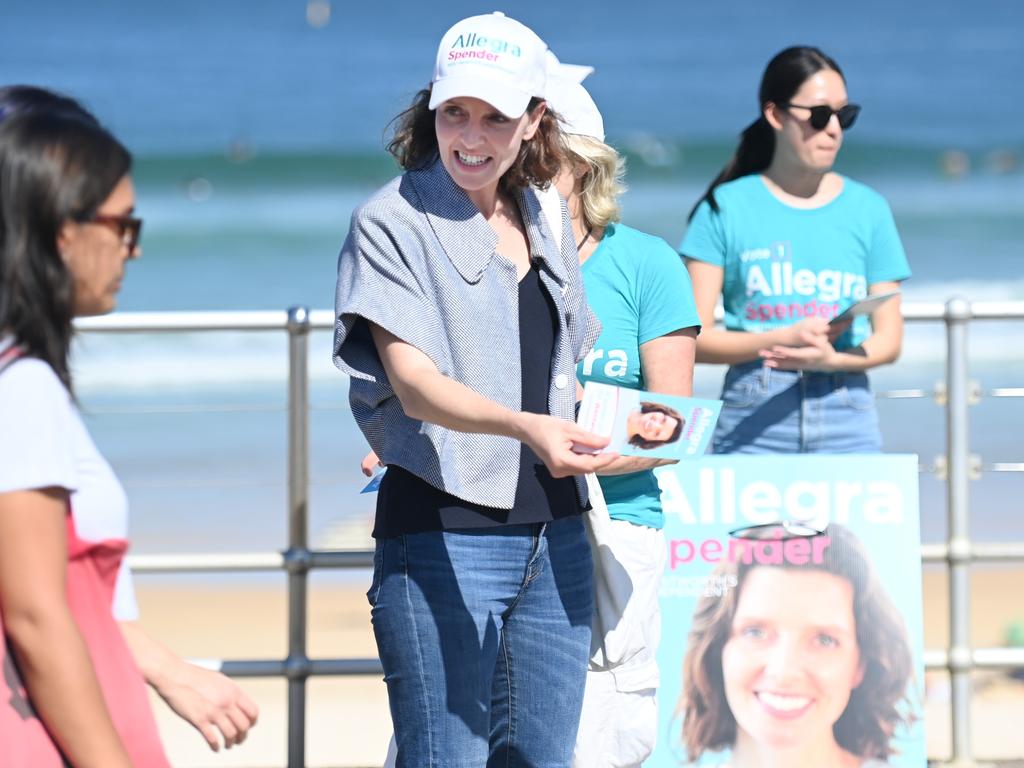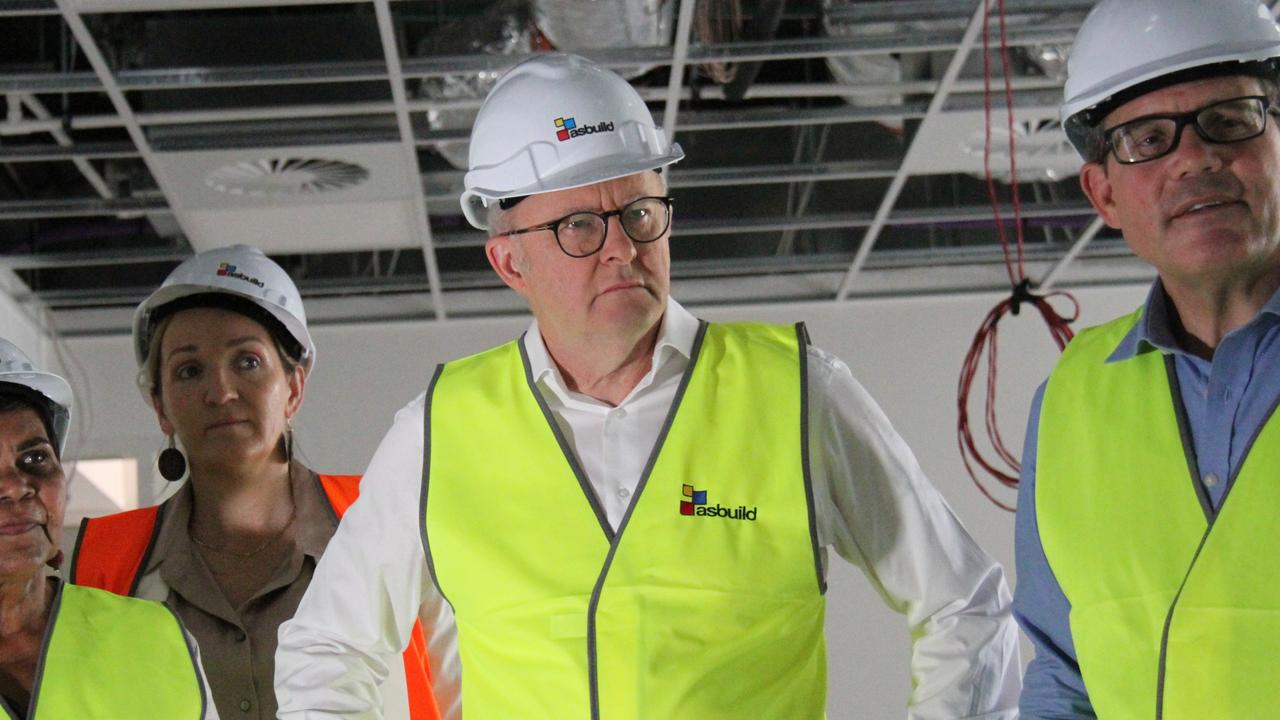Steggall sets blueprint for teal wave but rules out forming new party
The trailblazer for winning teal independent candidates in NSW, Zali Steggall, has ruled out forming a political party to pressure the new government into accepting tougher climate change action.
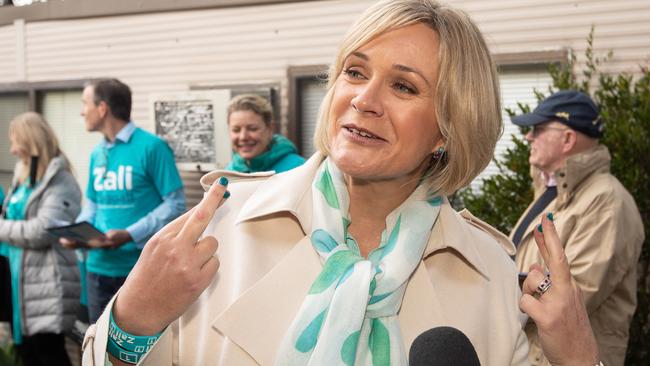
The trailblazer for winning teal independent candidates in NSW, Warringah MP Zali Steggall, has ruled out forming a political party to pressure the new Labor government into accepting tougher climate change action, but she predicts her group will work “collaboratively” on the crossbench.
The formula for success in defeating Liberal MPs adopted by Ms Steggall in 2019 when she unseated Tony Abbott in Warringah was replicated on a broader scale on Saturday with three additional Sydney-based independents elected to join her in parliament.
Allegra Spender in Wentworth, Kylea Tink in North Sydney and Sophie Scamps in Mackellar appeared to follow the pattern largely set by Ms Steggall as top professional women with social backgrounds and values similar to many conservative-leaning voters in the affluent areas they hoped to represent – but with a priority of doing more on climate change.
The three targeted safe Liberal seats held by moderates had well-funded, well-organised campaigns backed by Simon Holmes a Court’s Climate 200 group.
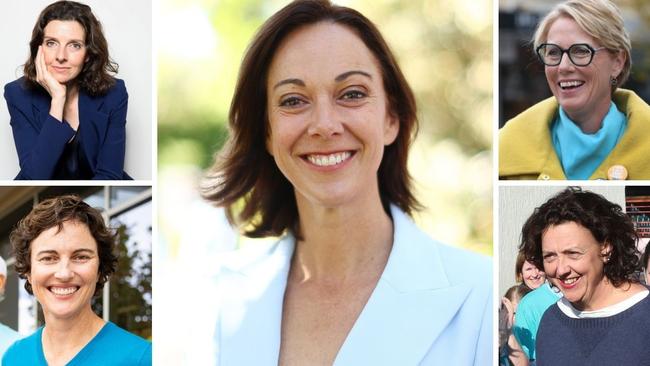
Again, following the Steggall lead, they won the vote count by following a strategy to peg back the primary votes of their Liberal MP opponents to about 40 per cent or less, then rising to clear majorities on preferences from Labor, Greens and other independents.
Labor will be potentially pressured into negotiating on legislation with six independents all up, including Victorians Monique Ryan and Zoe Daniel and West Australian Kate Chaney.
But the NSW group of four, and its interstate counterparts, could have little practical influence in persuading Labor to harden its policy of cutting emissions by 43 per cent by 2030 if the Albanese government continues to govern with a party majority. Ms Steggall, whose first victory against Mr Abbott was modelled in part on former Indi independent Cathy McGowan in Victoria, easily defeated her Liberal opponent, Katherine Deves, on Saturday. After Ms Steggall’s narrow win in 2019, the Liberal vote in Warringah slipped backwards 6 per cent.
Ms Deves, hand-picked by Scott Morrison after preselection delays and squabbling in the NSW division of the Liberal Party, attracted controversy over her comments opposing transgender people competing in women’s sport.
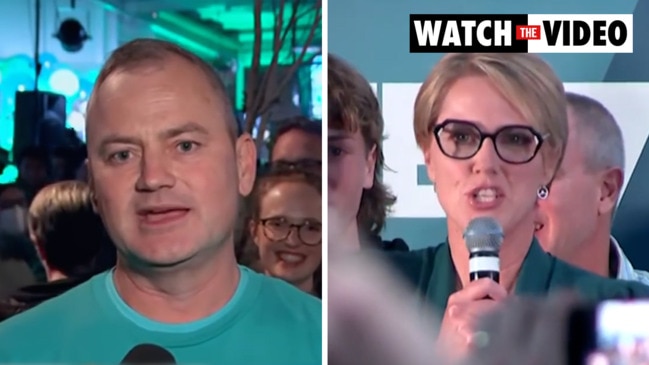
After initially apologising, and then standing firm, she struggled throughout the campaign, portrayed as a one-issue candidate despite trying to advocate on health and hospital care as the weeks rolled on. “You haven’t seen the last of me,” she said when conceding.
Ms Steggall said the teals’ victory was a moment for the major parties to “rethink the arrogance that they don’t have to consult with communities anymore”.
Ms Spender, after defeating first-time Liberal MP Dave Sharma in Malcolm Turnbull’s former blue-ribbon seat of Wentworth, said she and other independents were socially progressive and environmentally focused, but these values were not reflected in parliament or the Liberal Party, which she said had moved to the right.
Ms Spender is business executive and the daughter of former Liberal frontbencher John Spender and the late fashion designer Carla Zampatti. She defeated Mr Sharma after he won Wentworth in 2019 with a 1.3 per cent margin against Kerryn Phelps.
Ms Tink, who defeated Liberal MP Trent Zimmerman in North Sydney, said she intended to be the “voice” of her electorate and would pursue priorities of climate change, an integrity commission and gender equality for women.
Dr Scamps, who defeated Liberal Jason Falinski in MacKellar, said she wanted to bring the voices and values of her community to Canberra.
Another NSW independent with backing from Climate 200, lawyer Georgia Steele in ex-Liberal and UAP candidate Craig Kelly’s seat of Hughes, was unsuccessful. Mr Kelly lost his seat to replacement Liberal Jenny Ware.


